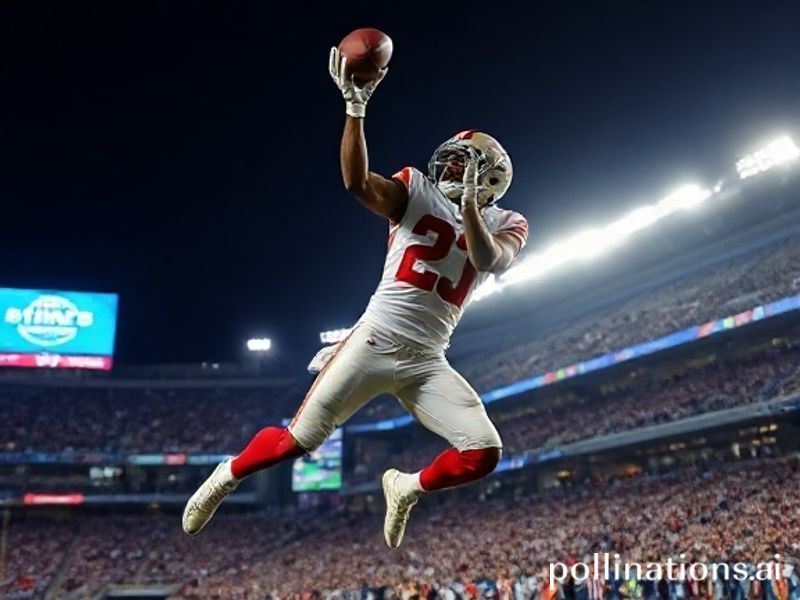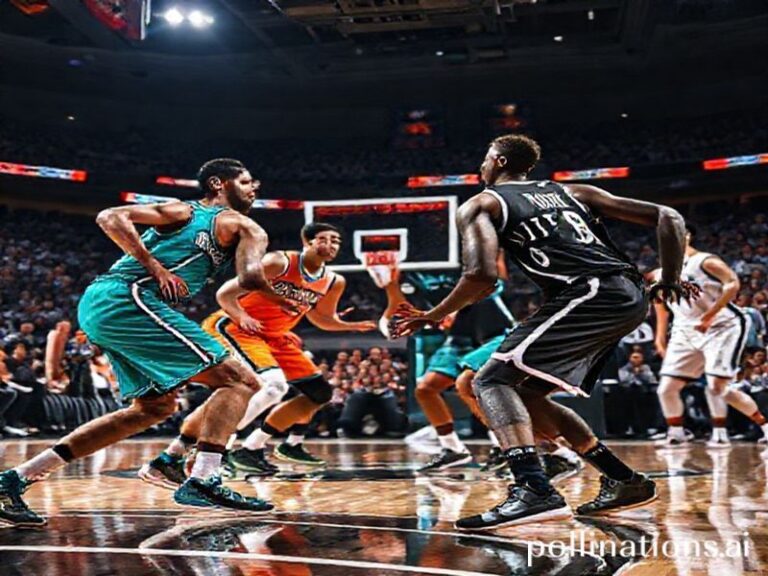Mike Evans: How One Man’s Sideline Circus Explains the Entire Planet’s Existential Crisis
Mike Evans and the Mirror He Holds Up to a World That Can’t Catch
By the time Mike Evans’ latest one-handed, gravity-defying grab hits the highlight reels from Lagos to Lisbon, three things are already certain: (1) the Earth will keep turning, (2) Tom Brady will still be playing somewhere, and (3) at least one government will have spent taxpayer money debating whether football is a greater threat to national productivity than TikTok. Evans, the languid 6’5″ Tampa Bay wideout who treats NFL cornerbacks like speed bumps, is not merely an athlete; he is a transnational Rorschach blot onto which every continent projects its own neuroses.
In the United States, Evans is celebrated as proof that meritocracy works, provided you were born with 4.4 speed and a catch radius that violates several FAA regulations. In Europe, where the NFL’s International Series now colonizes London, Munich, and—imminently—Madrid, Evans’ jersey outsells most Bundesliga kits, which tells you everything about late-capitalist attention spans and nothing about tactical defending. Across Africa, where satellite dishes bloom from corrugated rooftops like metallic mushrooms, young receivers in Accra and Abidjan study Evans’ footwork the way prior generations memorized Pelé’s. They know the odds of escaping local poverty via American football are roughly the same as being struck by celebratory gunfire from a nearby wedding, but hope, like a Hail Mary, is best thrown high and long.
Asia watches differently. In Seoul’s esports cafés, Evans’ acrobatics are clipped, GIF-fed, and re-looped until they resemble anime storyboards—an irony not lost on a continent that has monetized concentration better than any Adderall startup. Meanwhile, Chinese state media, ever allergic to unscripted excellence, edits Evans out entirely, substituting a CGI panda who catches passes with chopsticks. Somewhere, a Beijing censor is promoted for protecting socialist values from the corrupting influence of 1,001 receiving yards.
Then there’s the money. Evans’ contract—$82.5 million over five years—could bankroll the entire World Health Organization program on neglected tropical diseases, a fact that causes precisely zero moral hangovers in the luxury boxes where champagne costs more per bottle than a nurse’s annual salary in Jakarta. The global sports economy, after all, runs on the same principle as offshore tax havens: if the numbers are big enough, shame gets amortized.
Climate scientists, ever the life of the party, point out that every cross-country flight Evans takes to promote a new NFT drop vaporizes roughly forty polar bears’ worth of carbon. The Bears themselves, still searching for relevance since 1985, have not commented. Nor have the polar bears, who lack both opposable thumbs and a decent slot receiver.
And yet, for all the cynicism baked into this spectacle, Evans keeps performing small miracles: visiting sick children in hospitals that his tax bracket helps underfund, quietly paying college tuitions like a Robin Hood who never bothered to steal, and kneeling during anthems in stadiums built on land stolen twice—first from Indigenous tribes, then from municipal budgets. The gesture sparks think-pieces in seven languages, most of which miss the point that protest and profit are no longer mutually exclusive; they are simply co-authors of the same Netflix docuseries.
Ultimately, Mike Evans matters because he is a glitch in our planetary operating system: a Black man from Galveston who became indispensable in a league that once banned players for the crime of being too Black, in a country that still argues whether billionaires should pay taxes while streaming his highlights on phones assembled by underpaid workers who will never afford a ticket to see him play. The world watches, rapt, because the catch is cleaner than the context, and because, for three seconds at a time, gravity itself looks negotiable. When the highlight ends, we return to our respective national disasters—wildfires, coups, inflation rates that read like batting averages—comforted by the illusion that somewhere, someone is still winning.







